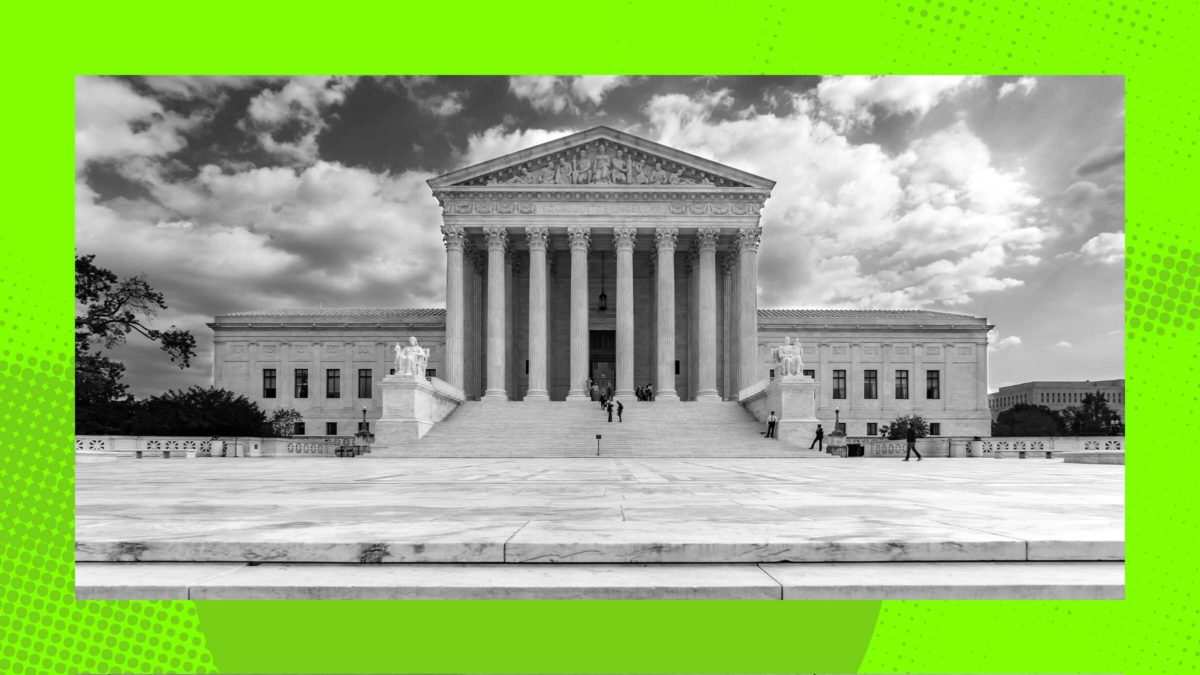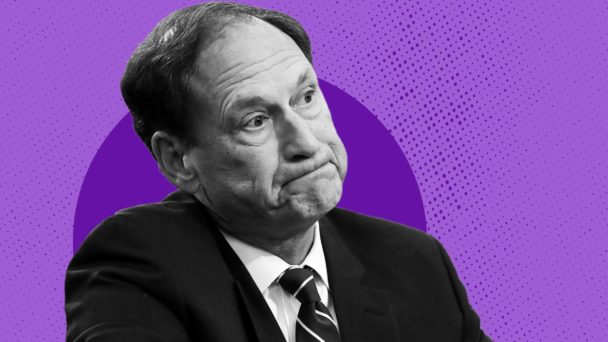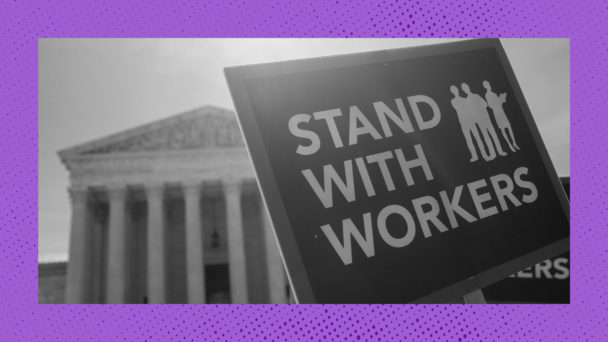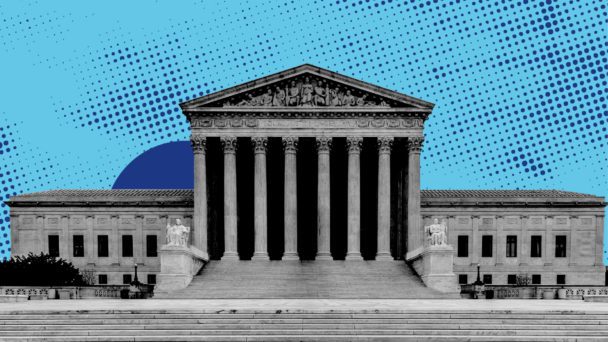On your average Tuesday on which the Supreme Court considers taking away the fundamental rights of millions, you can expect at least one justice to offer a full-throated defense of those rights. But last month, when the Court heard oral argument in Glacier Northwest, Inc. v. International Brotherhood of Teamsters Local Union 174, a case that could determine if workers retain a meaningful right to strike, there was no such powerful plea. Instead, the liberal justices seemed focused on finding an off-ramp to prevent a disastrous result—a righteous goal, sure, but one that resulted in no discussion of the importance of the right at stake. The Glacier Northwest argument was a wheezing canary in the coal mine of a federal judiciary in which there are almost no judges with backgrounds in union-side labor law.
For nearly a century, federal law has protected workers’ right to strike. Strikes are workers’ most powerful economic weapon; by withholding their labor, they can pressure employers to agree to a fair contract. The right to strike is not important only to workers who are in unions, but to all workers: If unionized workers lose their leverage to demand better pay and working conditions, non-union employers will gladly match those lower standards.
Glacier Northwest is about whether employers can bring devastatingly expensive lawsuits against unions in state court for the loss of perishable products during strikes—and perhaps other economic losses that flow from strikes, too. An anti-worker outcome in Glacier Northwest could render the right to strike as hollow as the “well-regulated militia” clause of the Second Amendment.
But you wouldn’t have known any of this from oral argument. The liberal justices’ questions sought out a viable middle ground—either a not-terrible new test for when an employer can sue over a strike, or a de-fanged decision for the employer that would send the case back to the state courts, which would probably dismiss it again later. The justices presumably have a better sense than I do whether these are real possibilities, either of which would absolutely be better than another one of Justice Samuel Alito’s comic book villain takedowns of unions. But the absence of urgency about the looming decimation of the right to strike was palpable.
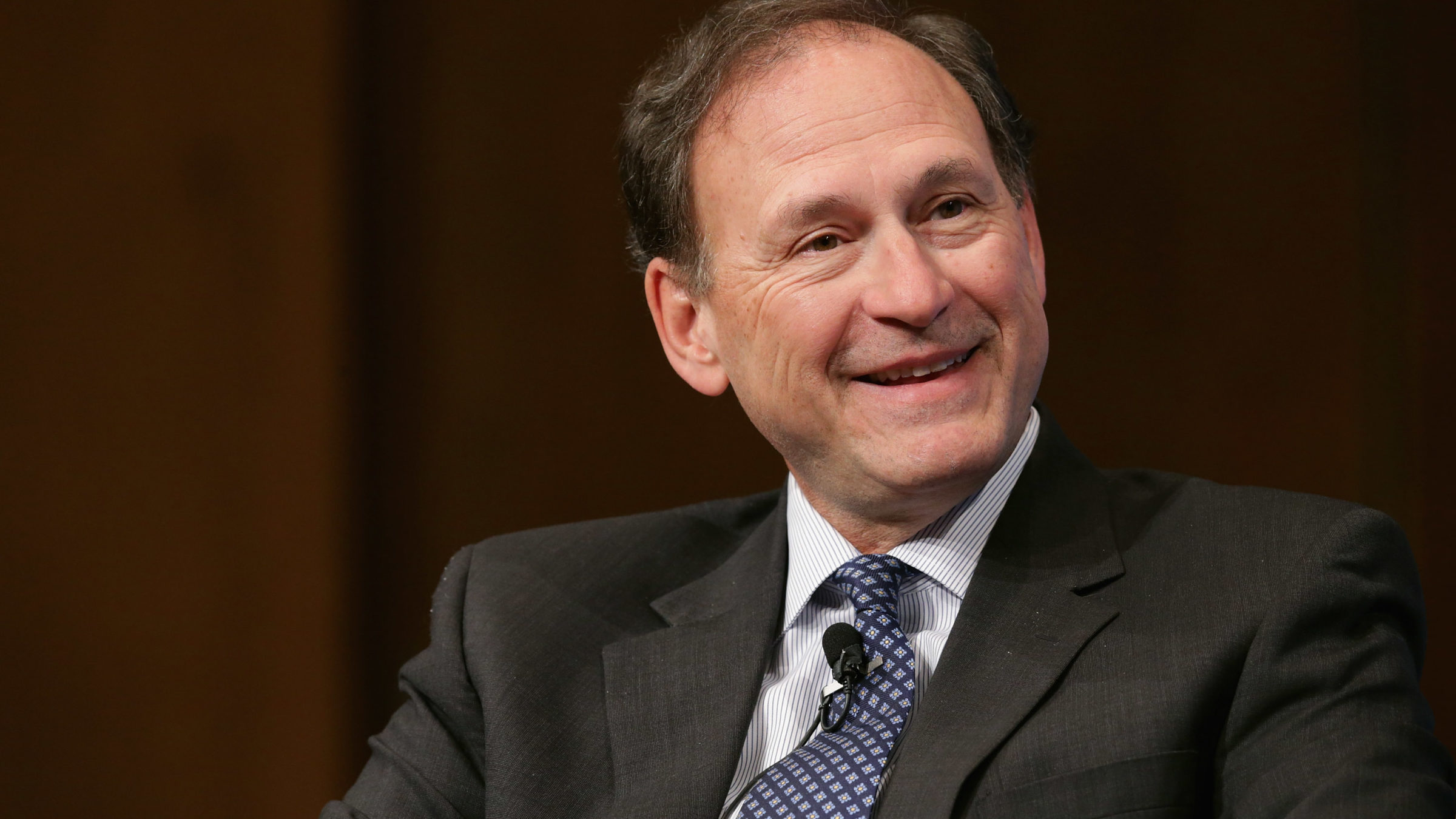
When you see scabs cross a picket line (Photo by Chip Somodevilla/Getty Images)
This is a pivotal moment for the labor movement. Public support for unions is at an all-time high, and most hourly workers would join a union if they could. Workers are organizing at places like Amazon and Starbucks despite opposition from their employers. At the same time, decades of attacks on unions—including consistent rulings from federal courts for wealthy corporations—means the proportion of workers represented by unions is at a historic low. That decline has fueled record-high income inequality and the disintegration of democracy. Against this backdrop, there is an acute need for judges with backgrounds in labor law to protect the fragile gains for which workers have fought.
In many ways, President Joe Biden’s administration has an excellent record on judicial nominations. His nominees have been historically diverse in terms of both demographics and professional background. Almost two-thirds have been people of color, and two-thirds have been women. More than half have experience in something other than corporate law or criminal prosecution. Biden has particularly excelled in putting public defenders on the bench; he has appointed nine appeals court judges with public defender backgrounds, more than all previous presidents combined.
By comparison, Biden has named very few judges with backgrounds in other underrepresented areas of law, including union-side labor law. In fact, he has named only one appeals court judge with this experience: Jennifer Sung, a former member of the Oregon Employment Relations Board who worked at union-side labor law firms and, before law school, as a union organizer. And because Marsha Berzon, another Ninth Circuit judge with a long career as a labor lawyer, took senior status last January, the overall number of active appeals court judges with significant union law experience has not changed since Biden’s election. And that number is tiny: Two of 168 active appeals court judges, to be precise. (Sixth Circuit Judge Jane Branstetter Stranch, an Obama appointee, is the other.) And at the same time, Biden has named several judges with management-side labor law experience to the bench, preserving or even worsening the federal courts’ pro-corporate tilt.
Types of professional diversity are not fungible. Union lawyers have firsthand understanding of what the law means for workers who are organizing a union, bargaining with their employer, or considering a strike to win a fair contract. There is a torrent of federal litigation attacking unions, particularly public-sector unions, thanks to well-funded right-wing think tanks and nonprofit law firms that exist to weaken the labor movement. It is wonderful that there are more public defenders on the bench, but that does not fix the fact that there are too few judges with professional experience to bring to bear on cases involving workers’ economic power.
Oral argument in Glacier Northwest would have been different with a labor lawyer on the Court. For example, that imaginary justice likely would have pointed out that the right to strike is workers’ most important tool for pressuring employers to come to the negotiating table. That’s why the National Labor Relations Act, passed in 1935 in the midst of intense Depression-era worker unrest, guaranteed the right to strike—so that workers would be able to get employers to play ball.
Our hypothetical labor lawyer justice might also have noted that the NLRA also preserves employers’ rights: They can use lockouts, hire replacement workers, or have managers and supervisors perform strikers’ work. The fact that both sides have economic weapons at their disposal is what gives them motivation to reach agreement. In Glacier Northwest, this justice could have asked the employer’s counsel to justify the fact that, if the Court were to allow companies to sue unions for the losses during strikes, workers would be unilaterally disarmed, left with no way to pressure their employer to agree to higher wages or anything else.
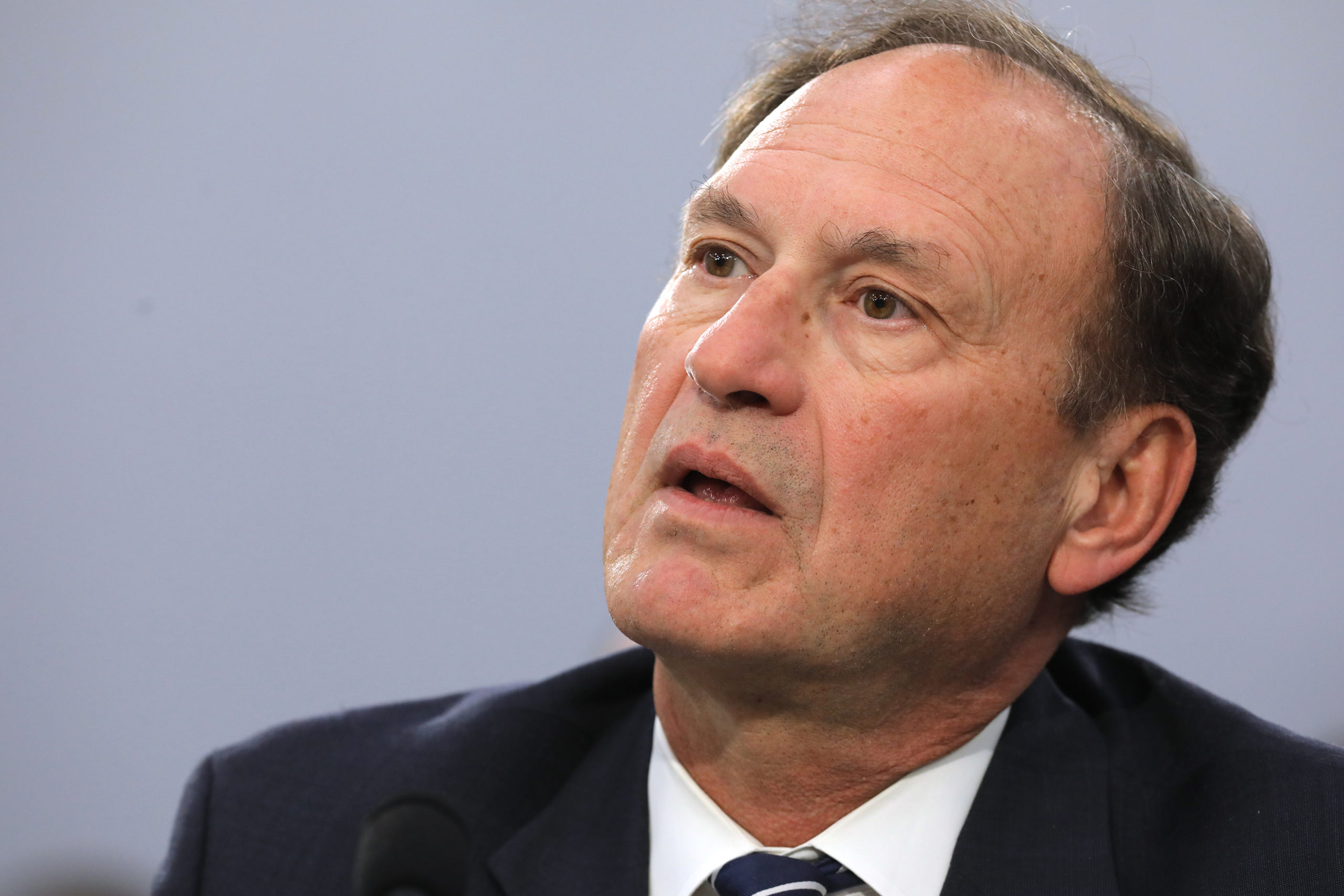
When an employer voluntarily recognizes a union (Photo by Chip Somodevilla/Getty Images)
The real-life liberal justices did poke a few holes in the employer’s case. Justice Sonia Sotomayor asked Glacier Northwest’s lawyer to distinguish between holding a union liable for the loss of perishable cement during a strike, and a state telling a union not to strike before the end of the workday—something even the attorney acknowledged states could not do. But the justices did not point to some of the more fundamental flaws in the employer’s position: For instance, if unions could be held liable for economic harm to their employer, shouldn’t workers be able to sue when employers’ economic weapons—lockouts, permanent replacements—cause economic harm to them? And how could the Court, which is purportedly run by textualists, justify reading the NLRA’s right to strike as riddled with extra-textual holes?
If there were a former union lawyer on the Court, it doesn’t seem conceivable that he or she would jump right to a search for a compromise without offering a vigorous defense of the right to strike. Justices often ask questions at oral argument that are aimed at the public, the media, and the judgment of history. This is what Sotomayor did in oral argument for Dobbs v. Jackson Women’s Health Organization, when she rhetorically asked Mississippi Solicitor General whether the Court could survive the “stench that this creates in the public perception, that the Constitution and its reading are just political acts?” “I don’t see how it is possible,” she said.
American democracy is in shambles and economic inequality is at an all-time high, thanks in significant part to the federal courts’ worsening record of ruling for the wealthy and powerful. With big-ticket legislation a near-impossibility in a Republican-controlled House, Democrats should spend basically all of the next two years nominating and confirming judges. This must include union-side labor lawyers who have spent their careers representing workers fighting for a better future for their families and communities. Doing so won’t by itself fix what’s wrong with our legal system, but it would be a crucial step toward building a federal judiciary that values and protects workers’ hard-won labor rights.
